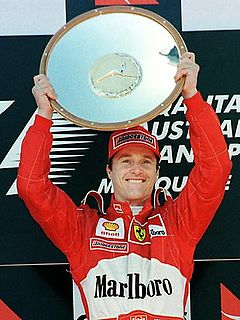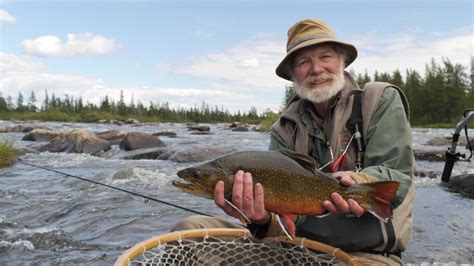A Quote by Jerome K. Jerome
So, eventually, he made one final arrangement with himself, which he has religiously held to ever since, and that was to count each fish that he caught as ten, and to assume ten to begin with. For example, if he did not catch any fish at all, then he said he had caught ten fish - you could never catch less than ten fish by his system; that was the foundation of it. Then, if by any chance he really did catch one fish, he called it twenty, while two fish would count thirty, three forty, and so on.
Related Quotes
[Writing is like fishing]. You don't bow because you made the fish. That's the difference. If you know that, then you bow for your labor.You crafted, you worked, you put in those hours so that you could catch that fish. But you didn't make that fish. You just caught the fish. That will help you stay humble and bow for the right reason and be very lucid about the work you do.
The process could be likened to relaxing on a riverbank and watching a fish leap out of the water, sparkle for a moment in the sunlight, then dive back in a graceful arc. There is no need to engage in a mental dialogue about the merits and demerits of the fish, emotionally react to the fish, or jump into the water to try to catch the fish. Once the fish is out of sight, it should also be out of mind.
The purpose of a fish trap is to catch fish, and when the fish are caught the trap is forgotten. The purpose of a rabbit snare is to catch rabbits. When the rabbits are caught, the snare is forgotten. The purpose of the word is to convey ideas. When the ideas are grasped, the words are forgotten. Where can I find a man who has forgotten words? He is the one I would like to talk to.
Catching fish is not a mental game between fish and angler. A 'smart' trout is only smarter than other trout, not smarter than a fisherman. An angler must take the puzzle of the day's conditions, and matching those conditions and his knowledge of the fish come up with a good catch. He competes with a concept, not with a fish's brain.
I am almost certain fishermen posess a peculiar bend to their makeup. Fisherman are optimists, and the fish in the future is always preferable to the fish at hand. Even the best fishermen catch fish only a small percentage of the time, which means we persevere in a sport that features failure as its main ingredient. Truly great days, when the fish hammer the fly as soon as it lands on the water are rare.
I know I'm a long way from greatness, but I am beginning to come at it in my own way. I can go through the basic motions pretty well, don't rely quite as religiously on specific fly patterns as I once did, have worked out ways of compensating for some of my most egregious weaknesses and have come to count heavily on timing because it's a hell of a lot easier to catch fish when the fish are biting.
Once upon a time, a fisherman went out to sea. He caught many fish and threw them all into a large bucket on his boat. The fish were not yet dead, so the man decided to ease their suffering by killing them swiftly. While he worked, the cold air made his eyes water. One of the wounded fish saw this and said to the other: "What a kind heart this fisherman has- see how he cries for us." The other fish replied: "Ignore his tears and watch what he is doing with his hands.


































